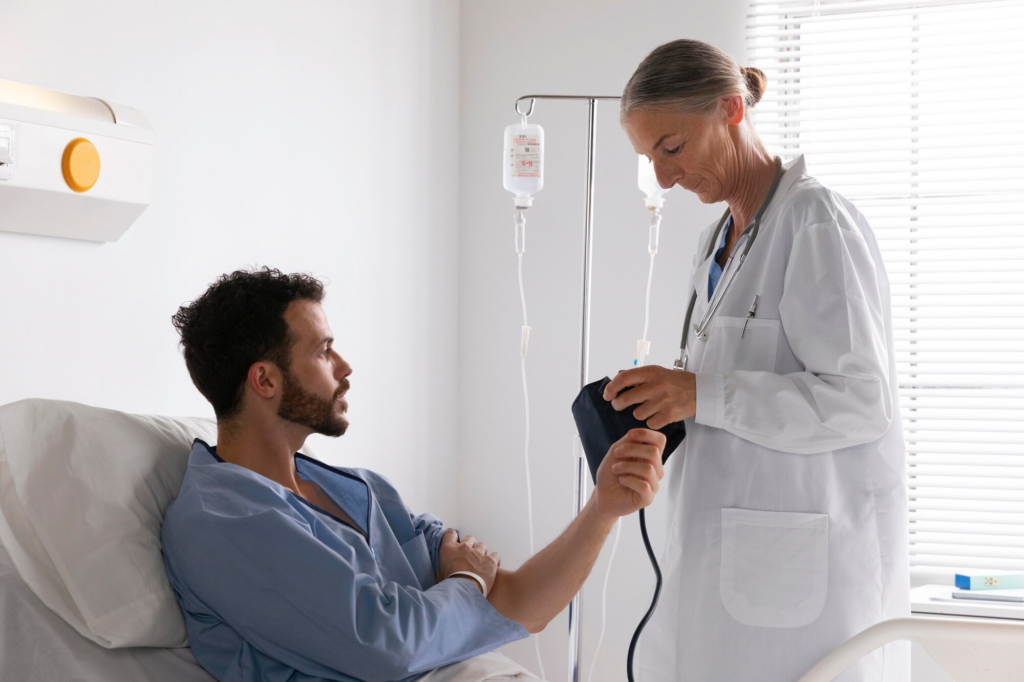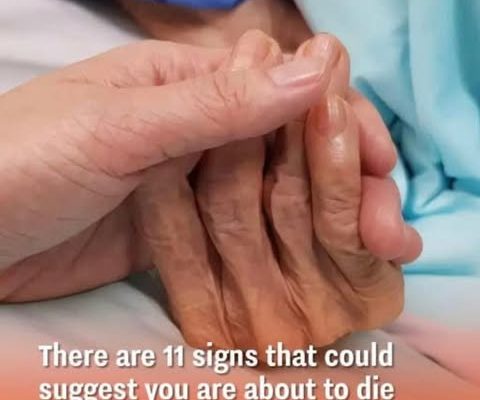We’ve all pondered the question: what does it truly look like and when do you know your time is up?
According to hospice nurse Julie McFadden, who recently disclosed that the body truly goes through four stages before passing away, there are typically a number of signs that a person is nearing the end of their life.
She added that for persons who pass away naturally, some indicators that death is imminent typically appear around the six-month mark.
Of course, it’s a frightening concept. However, specialists like as Julie aim to ‘alleviate the dread and stigma around dying’ by identifying the specific things that can happen, and it can be helpful to know what to look out for in anticipation.

1. Lack of appetite
As the end approaches, a person often becomes less active, which lowers the amount of energy required by their body.
According to VITAS Healthcare, this may cause them to cut back on their regular intake of food and liquids or perhaps stop eating altogether, which often occurs one to two months before to death.
To make sure the person is comfortable in their last few days or hours, Medical News Today suggests applying balm to their lips.
2. Needing more sleep
According to the publication, a person may spend less time awake in the latter days of their life, so it is recommended that they be allowed to sleep as long as they are comfortable.
VITAs also advises maintaining the person’s privacy while having an open conversation with them because, even when the other senses deteriorate with time, you can still hear what people are saying and the surroundings before you pass away.
3. A change in toilet habits
Bowel motions may decrease and become less frequent when a person is eating and drinking less, which is typical in the latter days of life.
It’s also possible for someone to lose control of their bowel movements, in which case it’s best to get medical assistance.
4. Weakening muscles
In their last hours, a person’s muscles may weaken, making it difficult for them to perform basic activities or take care of themselves, such getting out of bed or using the restroom.
5. Changing vital signs
Vital signs might fluctuate dramatically in the last days or minutes of life. This includes breathing changes, a faster or more erratic heartbeat, a reduction in blood pressure, and trouble feeling a pulse.
6. Body temperature
Because the blood is concentrated on the inside organs, circulation decreases in the final days of life. The hands, feet, or legs have a reduction in blood flow as a result.
Due to reduced circulation, a person’s skin may appear pale or mottled with blue and purple areas, and it may feel cold to the touch.
7. Breathing changes
In their last moments, a person’s breathing may shift dramatically. They might make gurgling, rattling, or grunting sounds while they breathe, or it might alter speed.
Even if you do observe these signs, it is not advisable to worry.
According to Medical News Today, if you are worried, go to a doctor or find a posture that makes breathing easier.
8. Experiencing pain
Unfortunately, as a person nears death, their level of agony may become too great to control with medication. Even though it is never pleasant to hear or see, it is crucial to be ready to witness a painful countenance or noise.
9. Less sociable
A person may not be able to be as social as they used to be when their energy levels decline. It is crucial to avoid taking offense when someone near death withdraws from particular circumstances; instead, schedule trips to see the person they approve of.
10. Confusion
A person may occasionally grow confused in the end. Although they may become disoriented, it is crucial to maintain communication with them, explain the situation, and introduce each guest.
11. Hallucinations
During a person’s last moments, hallucinations or distorted visions are typical. According to Katherine House Hospice, some dying patients may even see or speak to things that are not there.
Although it may be upsetting to observe, it is beneficial to keep the person calm and just remind them of what is occurring and who is present, rather than adding to their distress.



